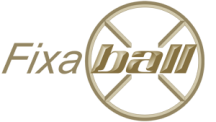Fixaball Engineering Fasteners and Their Applications
Fixaball has been providing engineering and construction services since 1983. We provide Imperial and Metric threaded cap screws, bolts, washers, nuts, and masonry anchors to everyone from home improvement hobbyists to huge corporations, at great prices for all quantities. We have a great loyalty program that is affordable for all budgets.
Fasteners
Fasteners are used in the fabricationof a wide range of wood, metal, plastic and masonry products. Fasteners are a broad category of a means to join materials and components that include nuts, screws, and bolts - mechanically holding objects together. A fastener is a piece of hardware that is used to attach or hold materials together in a non-permanent joint.
Titanium, aluminum, and different alloys are common materials used in the manufacturing of metal fasteners. Stainless steel, carbon steel, and alloy steel are the three main types of steel fasteners used in industry. Zinc, chrome, and hot-dip galvanizing are common coatings and platings used for fasteners.
Threaded fasteners come in both imperial and metric dimensions. For imperial threads such as UNC, UNF, BSW, and BSF, the pitch is expressed as the number of threads per inch (TPI), eg: ¼ - 20 BSW, 20 denotes 20 TPI. On the other hand, for metric and BA threads, the pitch refers to the distance in millimeters (mm) between the two adjacent crests of the thread, eg: M20 x 2.5, 2.5 means 2.5 mm space between two points on adjacent threads.
Applications of fasteners are diverse as they serve industries like medical, petrochemical, marine, turbine and power generation plants, military, nuclear, oilfields, and mining. In the United States alone, more than 200 billion fasteners are produced annually by 350 production facilities.
Types of Engineering Fasteners
Different types of engineering fasteners are screws, bolts, nuts, washers, and rivets.
1. Screws
Screw fasteners are one of the most adaptable fasteners as their threaded shafts provide long-lasting holding power. A drill is often used to produce a pilot hole in a material, then a screwdriver is used to push the screw into position. Various types and sizes of screws include; wood screws, drywall screws, deck screws, sheet metal screws, machine screws, masonry screws, and self-drilling screws. To manufacture a large quantity and precise quality of screws for various industries, swiss screw machines are widely used.


Bay pole screw Collated Drywall Screw
2. Bolts
Bolts are often used to connect two unthreaded components. On one end, a bolt has external male threads, and on the other, a hexagonal head. On the opposite end of the bolt, a nut is usually used to secure it. The most common types of bolts are carriage bolts and hex-head bolts.


Hex Bolt Through Bolts (Masonry Anchor)
3. Nuts
A nut is an internally threaded fastener. It is used in combination with a correspondingly-sized mating bolt. Due to the larger length and surface area that the spanner comes in touch with while tightening or loosening the nut, the square nut gives a greater grip and higher torque to the user than hex nuts. The most common types of nuts are coupling nuts, flange nuts, hex nuts, locknuts, wheel nuts, and square nuts.


Full Nuts Dome Nuts
4. Washers
Washers are little metal discs in the shape of an annulus. They're a type of fastener that goes with bolts and nuts. They're used to protect nuts, joints, and axle bearings from damage. Some types of washers are beveled washers, flat washers, lock washers, and structural washers.


Washers - Form A Washers - Spring, Phosphor Bronze
5. Rivets
Rivets are permanent fasteners that are used to secure a variety of materials. They are light and provide excellent resistance to shearing pressures. Rivets, unlike threaded fasteners, form a permanent connection that cannot be removed and reused. Rivets have a superior strength-to-weight ratio when compared to other fasteners. Blind rivets, drive rivets, large flange rivets, semi-tubular rivets, and tri-fold rivets are some of the most prevalent varieties.


Pop Rivets - Countersunk Pop RIvet - Large Flange
